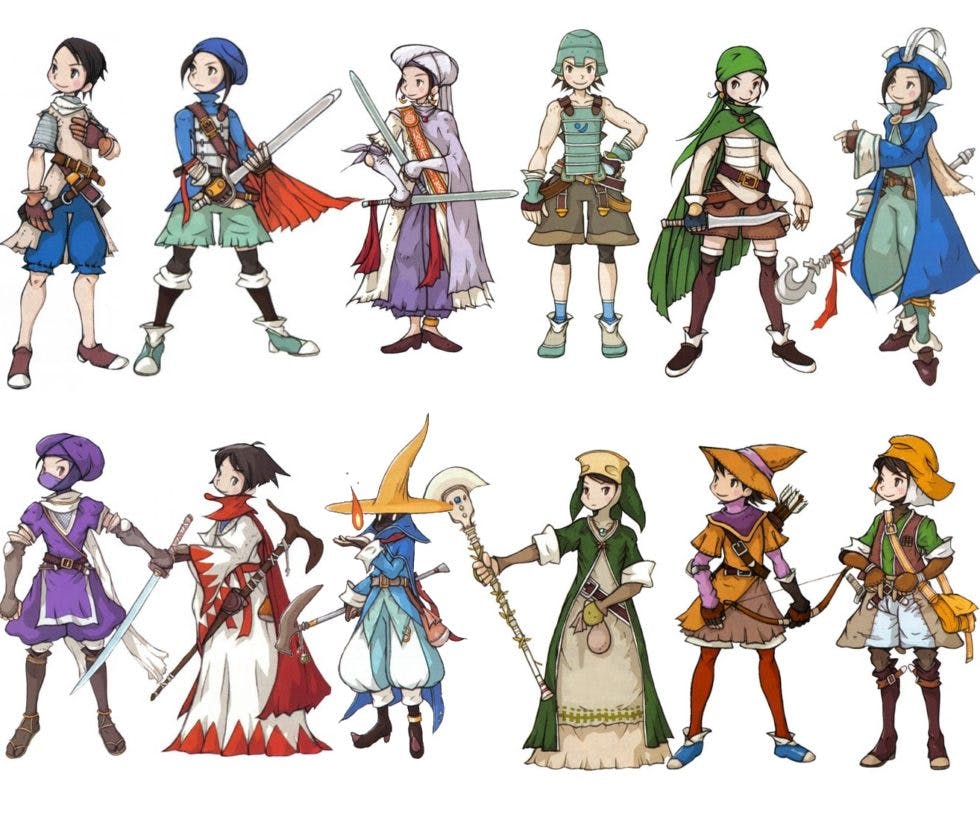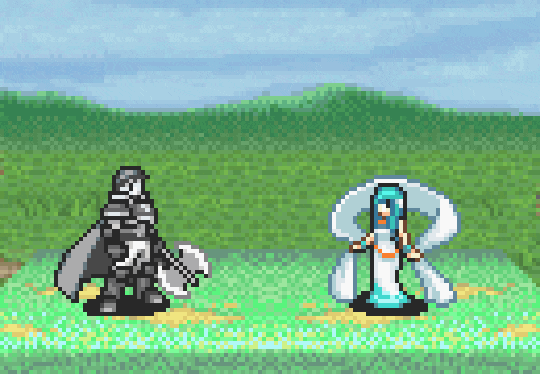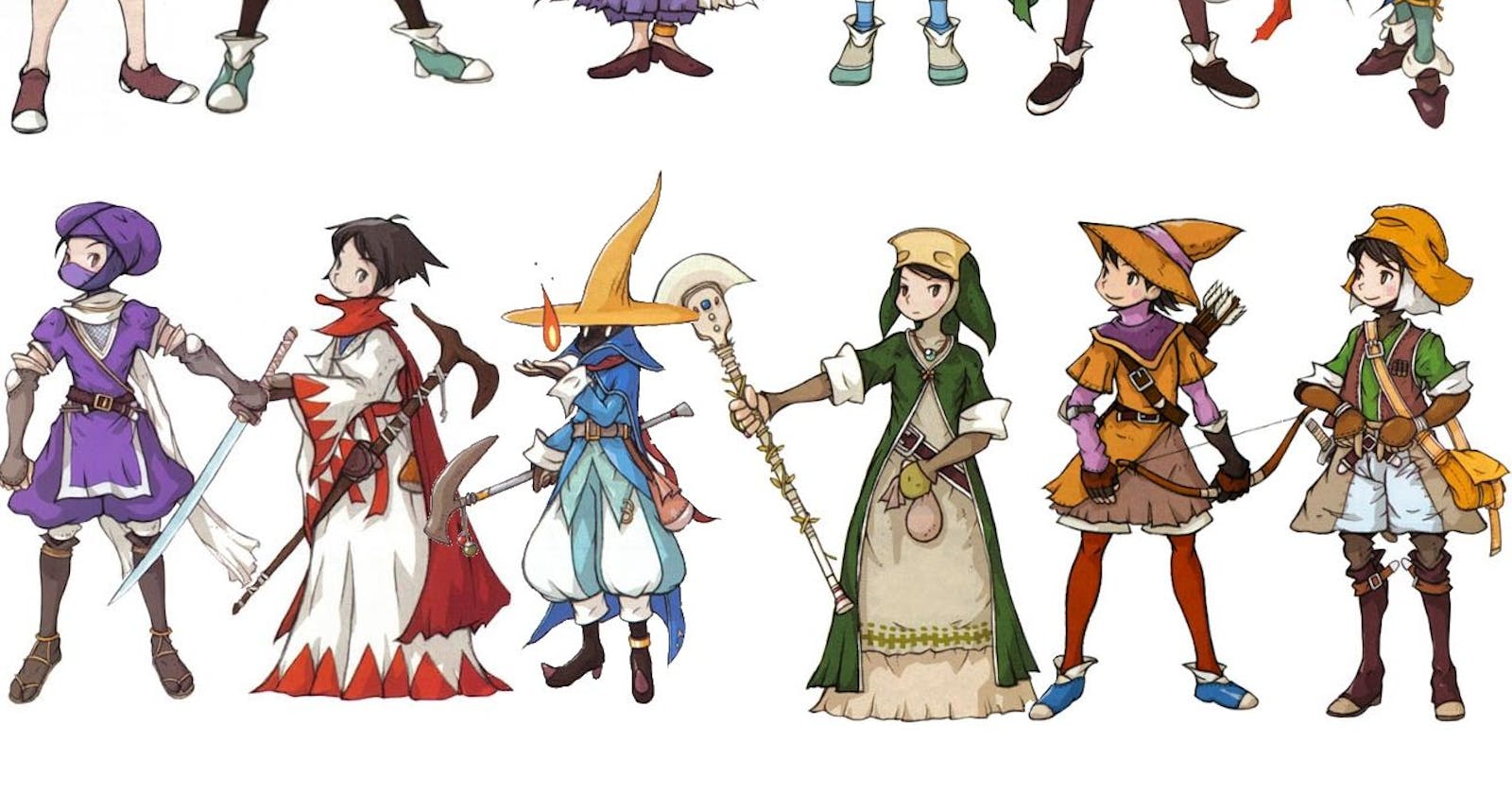About Roles in Tech, but RPG edition
Do I want to become a generalist or a specialist?
I had a meeting with my leader to review the fulfillment of my objectives for the past year. Since he joined the team after I had uploaded my objectives to the company's platform, he asked me to explain the motivation behind my 2022 objectives. This was so that we could establish my professional objectives for this year and align them with the business objectives.
Once I explained them to him, he told me that although the objectives were very well stated individually, collectively they lacked an overall objective. They were like wanting to put all the eggs in all the baskets at the same time. It won't simply make sense. Of course, at that time I was just starting my journey on data so I lacked the knowledge to know this. He suggested adding some ✨storytelling✨ to my objectives this year, so they won't feel like isolated efforts but like sidequests supporting this main quest called "Professional Development".

—So, what's your main objective this year?
I know I still need to fine-tune my hard skills. I want to get to know better the AWS ecosystem to automate our everyday tasks. I crave to excel at Python and I still have a lot of improvement room to optimize every SQL query. I desire to apply every math model I learned at college to help our customers —and, with them, the business— grow.
But my role, given the number of people we are, requires me to improve what we at Women Techmakers call "applied skills" —because they are anything but soft. There are other departments I need to interact with. To negotiate requirement deadlines. Project enhancements that I can recommend. And it's not only that I have to, but I happen to genuinely enjoy it as well. And for this, I need to have a deep understanding of the big picture.
Do I want to become a specialist or a generalist?
Specialists⚔️ vs Generalists🛡
This was one of the most recurrent questions when I was working as a Research Assistant in college. At that time I wanted to become an academic scientist, so I needed to think about what I wanted to study if I want to pursue a successful academic career.
Specializing in something would give me more weapons to deal with very specific problems. But not doing so and focusing on understanding what was around my problem would give me a broader picture that would allow me to have a better understanding of the particular problem. Even if I wasn't able to attack it with the same sharpness. They felt to me like a DPS vs Tank decision in an RPG game. When I switched to Tech, I realized it was not so different.

Since I was doing research in bioinformatics and because my "special skill" was programming, I had to have a bit of both: general knowledge of the problem —which included some biology, genetics, and chemistry— and specific knowledge of programming and math modeling. But science is about making the work replicable by others, so I ended up making written tutorials to replicate our work, and giving talks and workshops at science conferences.
I remembered that it was just this part that I enjoyed the most: making it easy for other scientists to replicate our work. Explaining the how-to to them. Motivating them to understand what was going on behind the technical stuff. Inspiring others to pursue a path in science. And it was no different in Technology.
—The truth is I would like to focus my professional career on Developer Advocacy.
Advocates🧙♀️ in Technology
It's not very common to have Developer Advocates —or similar— in a formal role for companies in my country. I had to explain what I meant by "Developer Advocacy". Dawn Parzych described it perfectly in her post: "My mission as a Developer Advocate is to help developers be better at their jobs".
There are many ways to achieve this: writing how-to guides and tutorials, making workshops or coding challenges, and writing technical documentation. I have found myself doing some of these tasks and that's when I most relish my workday.
—In the interviews I have done I have noticed that many either choose the generalist or specialist path. It never occurred to me that there might be a third path.
My leader said it felt like a Support role in an RPG game. He told me I would be like a White Mage from a Final Fantasy game. I imagined myself as Ninian or Nils from the Fire Emblem franchise. The comparison was hilarious but effective. I wanted to boost my team's stats.

And not just my team's stats. I realize that I have achieved more valuable things when I take the time to explain to other teams how the projects work from our side. They are the end users and have a better understanding of the business, but from this side, we are the ones who know what data we have available and how obtainable the data we don't have at hand is. By combining both, I have been able to coordinate with two teams to always think about how to further enhance what we have and coordinate deliverables in the short and medium term.
I want to choose the Advocacy path to also be a bridge between teams.
I know it's normal to have a little bit of everything, but... While performing your awesome Tech role, do you consider yourself more like a DPS, Tank, or Support?

